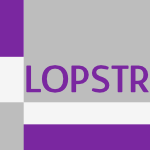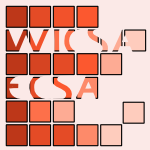308 papers:
 HT-2015-BurelMHA #behaviour #community #online #predict
HT-2015-BurelMHA #behaviour #community #online #predict- Predicting Answering Behaviour in Online Question Answering Communities (GB, PM, YH, HA), pp. 201–210.
 HT-2015-KayesKQIB #community
HT-2015-KayesKQIB #community- Cultures in Community Question Answering (IK, NK, DQ, AI, FB), pp. 175–184.
 SIGMOD-2015-ZhengZLYSZ #approach #graph #how #nondeterminism #rdf #similarity
SIGMOD-2015-ZhengZLYSZ #approach #graph #how #nondeterminism #rdf #similarity- How to Build Templates for RDF Question/Answering: An Uncertain Graph Similarity Join Approach (WZ, LZ, XL, JXY, SS, DZ), pp. 1809–1824.
 VLDB-2015-GaoL0ZZ #query
VLDB-2015-GaoL0ZZ #query- Answering Why-not Questions on Reverse Top-k Queries (YG, QL, GC, BZ, LZ), pp. 738–749.
 ITiCSE-2015-DiethelmG #education
ITiCSE-2015-DiethelmG #education- Questions on Spoken Language and Terminology for Teaching Computer Science (ID, JG), pp. 21–26.
 ITiCSE-2015-MishraI #data type #student
ITiCSE-2015-MishraI #data type #student- Question-Posing strategies used by students for exploring Data Structures (SM, SI), pp. 171–176.
 MSR-2015-DiamantopoulosS #source code #stack overflow
MSR-2015-DiamantopoulosS #source code #stack overflow- Employing Source Code Information to Improve Question-Answering in Stack Overflow (TGD, ALS), pp. 454–457.
 MSR-2015-DuijnKB #quality #stack overflow
MSR-2015-DuijnKB #quality #stack overflow- Quality Questions Need Quality Code: Classifying Code Fragments on Stack Overflow (MD, AK, AB), pp. 410–413.
 MSR-2015-MalikZG #analysis #energy
MSR-2015-MalikZG #analysis #energy- Going Green: An Exploratory Analysis of Energy-Related Questions (HM, PZ, MWG), pp. 418–421.
 MSR-2015-RahmanR #stack overflow
MSR-2015-RahmanR #stack overflow- An Insight into the Unresolved Questions at Stack Overflow (MMR, CKR), pp. 426–429.
 DLT-2015-MasakovaPS #word
DLT-2015-MasakovaPS #word- Interval Exchange Words and the Question of Hof, Knill, and Simon (ZM, EP, SS), pp. 377–388.
 CHI-2015-BirnholtzMP #facebook #quote
CHI-2015-BirnholtzMP #facebook #quote- “Is it Weird to Still Be a Virgin”: Anonymous, Locally Targeted Questions on Facebook Confession Boards (JPB, NARM, AP), pp. 2613–2622.
 CHI-2015-HangLH #authentication #exclamation #security #smarttech #what
CHI-2015-HangLH #authentication #exclamation #security #smarttech #what- I Know What You Did Last Week! Do You?: Dynamic Security Questions for Fallback Authentication on Smartphones (AH, ADL, HH), pp. 1383–1392.
 CHI-2015-HongGAA #crowdsourcing
CHI-2015-HongGAA #crowdsourcing- In-group Questions and Out-group Answers: Crowdsourcing Daily Living Advice for Individuals with Autism (HH, EG, GDA, RIA), pp. 777–786.
 CSCW-2015-Huh #community #health #online #thread
CSCW-2015-Huh #community #health #online #thread- Clinical Questions in Online Health Communities: The Case of “See your doctor” Threads (JH), pp. 1488–1499.
 HCI-DE-2015-VlachostergiouC #human-computer
HCI-DE-2015-VlachostergiouC #human-computer- HCI and Natural Progression of Context-Related Questions (AV, GC, AR, SDK), pp. 530–541.
 RecSys-2015-AuteriT #linear #personalisation
RecSys-2015-AuteriT #linear #personalisation- Personalized Catch-up & DVR: VOD or Linear, That is the Question (PA, RT), p. 227.
 SIGIR-2015-Bagdouri
SIGIR-2015-Bagdouri- Cross-Platform Question Routing for Better Question Answering (MB), p. 1053.
 SIGIR-2015-DijkTR #community #detection #topic
SIGIR-2015-DijkTR #community #detection #topic- Early Detection of Topical Expertise in Community Question Answering (DvD, MT, MdR), pp. 995–998.
 ESEC-FSE-2015-SmithJMCL #developer #security #static analysis
ESEC-FSE-2015-SmithJMCL #developer #security #static analysis- Questions developers ask while diagnosing potential security vulnerabilities with static analysis (JS, BJ, ERMH, BC, HRL), pp. 248–259.
 LICS-2015-MoninN #approach
LICS-2015-MoninN #approach- A Unifying Approach to the Gamma Question (BM, AN), pp. 585–596.
 ASE-2014-YeXZC #ranking #retrieval
ASE-2014-YeXZC #ranking #retrieval- Interrogative-guided re-ranking for question-oriented software text retrieval (TY, BX, YZ, XC), pp. 115–120.
 HT-2014-YangHBH #collaboration
HT-2014-YangHBH #collaboration- Asking the right question in collaborative q&a systems (JY, CH, AB, GJH), pp. 179–189.
 SIGMOD-2014-ZouHWYHZ #approach #data-driven #graph #natural language #rdf
SIGMOD-2014-ZouHWYHZ #approach #data-driven #graph #natural language #rdf- Natural language question answering over RDF: a graph data driven approach (LZ, RH, HW, JXY, WH, DZ), pp. 313–324.
 MSR-2014-BajajPM #developer #mining #web
MSR-2014-BajajPM #developer #mining #web- Mining questions asked by web developers (KB, KP, AM), pp. 112–121.
 MSR-2014-PintoCL #energy #mining
MSR-2014-PintoCL #energy #mining- Mining questions about software energy consumption (GP, FC, YDL), pp. 22–31.
 DLT-J-2013-IbarraR14 #complexity
DLT-J-2013-IbarraR14 #complexity- Some Decision Questions Concerning the Time Complexity of Language Acceptors (OHI, BR), pp. 1127–1140.
 DLT-J-2013-Shur14 #anti #finite
DLT-J-2013-Shur14 #anti #finite- Languages with a Finite antidictionary: some growth Questions (AMS), pp. 937–954.
 CHI-2014-Gilbert #performance #social #what
CHI-2014-Gilbert #performance #social #what- What if we ask a different question?: social inferences create product ratings faster (EG), pp. 2759–2762.
 CHI-2014-TewariC #game studies #what
CHI-2014-TewariC #game studies #what- What did spot hide?: a question-answering game for preschool children (AT, JC), pp. 1807–1816.
 LCT-TRE-2014-LoureiroSBR #collaboration #question #what
LCT-TRE-2014-LoureiroSBR #collaboration #question #what- Collaboration, Knowledge Sharing and Digital Environments: What about Argumentation and Questioning Skills? (MJ(L, FNdS, AB, AR), pp. 440–449.
 ICEIS-v2-2014-ProcaciSA #analysis #community #metric #online #people #reduction #reliability
ICEIS-v2-2014-ProcaciSA #analysis #community #metric #online #people #reduction #reliability- Finding Reliable People in Online Communities of Questions and Answers — Analysis of Metrics and Scope Reduction (TBP, SWMS, LCVdA), pp. 526–535.
 CIKM-2014-CarmelMPS #analysis #community #using
CIKM-2014-CarmelMPS #analysis #community #using- Improving Term Weighting for Community Question Answering Search Using Syntactic Analysis (DC, AM, YP, IS), pp. 351–360.
 CIKM-2014-ChanDYTZ #classification #ranking #retrieval
CIKM-2014-ChanDYTZ #classification #ranking #retrieval- Term Selection and Result Reranking for Question Retrieval by Exploiting Hierarchical Classification (WC, JD, WY, JT, XZ), pp. 141–150.
 CIKM-2014-HasanainEM #identification #microblog
CIKM-2014-HasanainEM #identification #microblog- Identification of Answer-Seeking Questions in Arabic Microblogs (MH, TE, WM), pp. 1839–1842.
 CIKM-2014-SondhiZ #community #knowledge base #mining #natural language #online
CIKM-2014-SondhiZ #community #knowledge base #mining #natural language #online- Mining Semi-Structured Online Knowledge Bases to Answer Natural Language Questions on Community QA Websites (PS, CZ), pp. 341–350.
 CIKM-2014-YangSR #recommendation
CIKM-2014-YangSR #recommendation- Constrained Question Recommendation in MOOCs via Submodularity (DY, JS, CPR), pp. 1987–1990.
 CIKM-2014-ZhangKLCY #approach #named #scalability
CIKM-2014-ZhangKLCY #approach #named #scalability- NCR: A Scalable Network-Based Approach to Co-Ranking in Question-and-Answer Sites (JZ, XK, RJL, YC, PSY), pp. 709–718.
 CIKM-2014-ZhangWWLZ #community #quality #retrieval
CIKM-2014-ZhangWWLZ #community #quality #retrieval- Question Retrieval with High Quality Answers in Community Question Answering (KZ, WW, HW, ZL, MZ), pp. 371–380.
 KDD-2014-FaderZE #knowledge base
KDD-2014-FaderZE #knowledge base- Open question answering over curated and extracted knowledge bases (AF, LZ, OE), pp. 1156–1165.
 KR-2014-GottlobLP #datalog
KR-2014-GottlobLP #datalog- Datalog+/-: Questions and Answers (GG, TL, AP).
 RecSys-2014-PedroK #collaboration #recommendation
RecSys-2014-PedroK #collaboration #recommendation- Question recommendation for collaborative question answering systems with RankSLDA (JSP, AK), pp. 193–200.
 RecSys-2014-YangAR #constraints #online #recommendation
RecSys-2014-YangAR #constraints #online #recommendation- Question recommendation with constraints for massive open online courses (DY, DA, CPR), pp. 49–56.
 SIGIR-2014-YangLCN #named
SIGIR-2014-YangLCN #named- QUADS: question answering for decision support (ZY, YL, JC, EN), pp. 375–384.
 Onward-2014-StefikH #community #programming language
Onward-2014-StefikH #community #programming language- The Programming Language Wars: Questions and Responsibilities for the Programming Language Community (AS, SH), pp. 283–299.
 PLATEAU-2014-KubelkaBR #programming #smalltalk
PLATEAU-2014-KubelkaBR #programming #smalltalk- Asking and Answering Questions during a Programming Change Task in Pharo Language (JK, AB, RR), pp. 1–11.
 RE-2014-SaitoTYA #design #named #quality #requirements #set
RE-2014-SaitoTYA #design #named #quality #requirements #set- RISDM: A requirements inspection systems design methodology: Perspective-based design of the pragmatic quality model and question set to SRS (SS, MT, SY, MA), pp. 223–232.
 SAC-2014-CamposM #automation #categorisation
SAC-2014-CamposM #automation #categorisation- Automatic categorization of questions from Q&A sites (ECC, MdAM), pp. 641–643.
 ICSE-2014-BegelZ #exclamation #re-engineering
ICSE-2014-BegelZ #exclamation #re-engineering- Analyze this! 145 questions for data scientists in software engineering (AB, TZ), pp. 12–13.
 SMT-2014-KostaSD
SMT-2014-KostaSD- Better Answers to Real Questions (MK, TS, AD), p. 69.
 ASE-2013-WongYT #automation #generative #mining #named
ASE-2013-WongYT #automation #generative #mining #named- AutoComment: Mining question and answer sites for automatic comment generation (EW, JY, LT), pp. 562–567.
 HT-2013-BurelH #community #complexity #maturity #online
HT-2013-BurelH #community #complexity #maturity #online- A question of complexity: measuring the maturity of online enquiry communities (GB, YH), pp. 1–10.
 SIGMOD-2013-HuangZ #natural language #rdf
SIGMOD-2013-HuangZ #natural language #rdf- Natural language question answering over RDF data (RH, LZ), pp. 1289–1290.
 VLDB-2013-WhangLG
VLDB-2013-WhangLG- Question Selection for Crowd Entity Resolution (SEW, PL, HGM), pp. 349–360.
 ITiCSE-WGR-2013-SandersACEGJLMP #multi #repository
ITiCSE-WGR-2013-SandersACEGJLMP #multi #repository- The Canterbury QuestionBank: building a repository of multiple-choice CS1 and CS2 questions (KS, MA, TC, SHE, MG, CJ, RL, RM, EAP, JS), pp. 33–52.
 ICPC-2013-Myers #comprehension
ICPC-2013-Myers #comprehension- Improving program comprehension by answering questions (keynote) (BAM), pp. 1–2.
 MSR-2013-AllamanisS #stack overflow #topic #what #why
MSR-2013-AllamanisS #stack overflow #topic #what #why- Why, when, and what: analyzing stack overflow questions by topic, type, and code (MA, CAS), pp. 53–56.
 MSR-2013-AsaduzzamanMRS #stack overflow
MSR-2013-AsaduzzamanMRS #stack overflow- Answering questions about unanswered questions of stack overflow (MA, ASM, CKR, KAS), pp. 97–100.
 MSR-2013-SahaSS #approach #automation #stack overflow
MSR-2013-SahaSS #approach #automation #stack overflow- A discriminative model approach for suggesting tags automatically for stack overflow questions (AKS, RKS, KAS), pp. 73–76.
 MSR-2013-WangG #android #api #case study #detection #developer
MSR-2013-WangG #android #api #case study #detection #developer- Detecting API usage obstacles: a study of iOS and Android developer questions (WW, MWG), pp. 61–64.
 DLT-2013-IbarraR #complexity
DLT-2013-IbarraR #complexity- Some Decision Questions Concerning the Time Complexity of Language Acceptors (OHI, BR), pp. 264–276.
 CHI-2013-Thimbleby
CHI-2013-Thimbleby- Reasons to question seven segment displays (HT), pp. 1431–1440.
 CSCW-2013-BradyZMB #network #social
CSCW-2013-BradyZMB #network #social- Investigating the appropriateness of social network question asking as a resource for blind users (ELB, YZ, MRM, JPB), pp. 1225–1236.
 CSCW-2013-GrayEVL #facebook
CSCW-2013-GrayEVL #facebook- Who wants to know?: question-asking and answering practices among facebook users (RG, NBE, JV, CL), pp. 1213–1224.
 CSCW-2013-LiuJ #behaviour #social
CSCW-2013-LiuJ #behaviour #social- Factors influencing the response rate in social question and answering behavior (ZL, BJJ), pp. 1263–1274.
 HCI-AS-2013-TsumoriN #design #evaluation #using
HCI-AS-2013-TsumoriN #design #evaluation #using- Design and Evaluation of Training System for Numerical Calculation Using Questions in SPI2 (ST, KN), pp. 511–520.
 HIMI-D-2013-MasieroTJ #parametricity
HIMI-D-2013-MasieroTJ #parametricity- Similar or Not Similar: This Is a Parameter Question (AAM, FT, PTAJ), pp. 484–493.
 CIKM-2013-ChanYTDZW #categorisation #classification #community #kernel #topic
CIKM-2013-ChanYTDZW #categorisation #classification #community #kernel #topic- Community question topic categorization via hierarchical kernelized classification (WC, WY, JT, JD, XZ, WW), pp. 959–968.
 CIKM-2013-LiuN #ranking
CIKM-2013-LiuN #ranking- A phased ranking model for question answering (RL, EN), pp. 79–88.
 CIKM-2013-YahyaBEW #linked data #open data #robust #web
CIKM-2013-YahyaBEW #linked data #open data #robust #web- Robust question answering over the web of linked data (MY, KB, SE, GW), pp. 1107–1116.
 CIKM-2013-YangQGZJSC #community #named #topic
CIKM-2013-YangQGZJSC #community #named #topic- CQArank: jointly model topics and expertise in community question answering (LY, MQ, SG, FZ, JJ, HS, ZC), pp. 99–108.
 ECIR-2013-BeloborodovKB #community
ECIR-2013-BeloborodovKB #community- Characterizing Health-Related Community Question Answering (AB, AK, PB), pp. 680–683.
 ECIR-2013-FuNZWJZ #classification
ECIR-2013-FuNZWJZ #classification- Classification of Opinion Questions (HF, ZN, CZ, LW, PJ, JZ), pp. 714–717.
 KDD-2013-DasMGW #learning
KDD-2013-DasMGW #learning- Learning to question: leveraging user preferences for shopping advice (MD, GDFM, AG, IW), pp. 203–211.
 KDD-2013-Etzioni
KDD-2013-Etzioni- To buy or not to buy: that is the question (OE), p. 1133.
 KEOD-2013-SoumanaCG #design #ontology
KEOD-2013-SoumanaCG #design #ontology- A Lexicon Design for Ontology-based Question Answering (IS, SC, PG), pp. 170–175.
 SIGIR-2013-ChenZL #retrieval
SIGIR-2013-ChenZL #retrieval- Question retrieval with user intent (LC, DZ, ML), pp. 973–976.
 SIGIR-2013-GaoCLC #comprehension #query #towards
SIGIR-2013-GaoCLC #comprehension #query #towards- Mapping queries to questions: towards understanding users’ information needs (YG, LC, RL, GC), pp. 977–980.
 SIGIR-2013-Molino #modelling #ranking #semantics
SIGIR-2013-Molino #modelling #ranking #semantics- Semantic models for answer re-ranking in question answering (PM), p. 1146.
 RE-2013-Salger #challenge #open science #requirements #research
RE-2013-Salger #challenge #open science #requirements #research- Requirements reviews revisited: Residual challenges and open research questions (FS), pp. 250–255.
 ESEC-FSE-2013-SahaSP #case study #comprehension #stack overflow #towards
ESEC-FSE-2013-SahaSP #case study #comprehension #stack overflow #towards- Toward understanding the causes of unanswered questions in software information sites: a case study of stack overflow (RKS, AKS, DEP), pp. 663–666.
 ICST-2013-Vernotte #modelling #research #testing #web
ICST-2013-Vernotte #modelling #research #testing #web- Research Questions for Model-Based Vulnerability Testing of Web Applications (AV), pp. 505–506.
 DRR-2012-DasSS #automation #documentation #tool support #workflow
DRR-2012-DasSS #automation #documentation #tool support #workflow- Questioned document workflow for handwriting with automated tools (KD, SNS, HS).
 ITiCSE-2012-Luxton-ReillyDPS #how #learning #process #student
ITiCSE-2012-Luxton-ReillyDPS #how #learning #process #student- Activities, affordances and attitude: how student-generated questions assist learning (ALR, PD, BP, RS), pp. 4–9.
 CHI-2012-RasmussenPPH #bibliography #design #interface #open science #research
CHI-2012-RasmussenPPH #bibliography #design #interface #open science #research- Shape-changing interfaces: a review of the design space and open research questions (MKR, EWP, MGP, KH), pp. 735–744.
 CHI-2012-VinesBLDMO #concept #design
CHI-2012-VinesBLDMO #concept #design- Questionable concepts: critique as resource for designing with eighty somethings (JV, MB, SL, PD, AM, PO), pp. 1169–1178.
 CSCW-2012-NicholsK #network #social
CSCW-2012-NicholsK #network #social- Asking questions of targeted strangers on social networks (JN, JHK), pp. 999–1002.
 CSCW-2012-PalMK #identification
CSCW-2012-PalMK #identification- Question temporality: identification and uses (AP, JM, JAK), pp. 257–260.
 CSCW-2012-PanovichMK #network #social
CSCW-2012-PanovichMK #network #social- Tie strength in question & answer on social network sites (KP, RM, DRK), pp. 1057–1066.
 CIKM-2012-AgarwalRSMLGF #learning #rank #robust
CIKM-2012-AgarwalRSMLGF #learning #rank #robust- Learning to rank for robust question answering (AA, HR, KS, PM, RDL, DG, JF), pp. 833–842.
 CIKM-2012-BaeK #classification #effectiveness #recommendation
CIKM-2012-BaeK #classification #effectiveness #recommendation- An effective category classification method based on a language model for question category recommendation on a cQA service (KB, YK), pp. 2255–2258.
 CIKM-2012-ChaliHI #learning #performance
CIKM-2012-ChaliHI #learning #performance- Improving the performance of the reinforcement learning model for answering complex questions (YC, SAH, KI), pp. 2499–2502.
 CIKM-2012-JiXWH #community #retrieval #topic
CIKM-2012-JiXWH #community #retrieval #topic- Question-answer topic model for question retrieval in community question answering (ZJ, FX, BW, BH), pp. 2471–2474.
 CIKM-2012-KrikonCK #performance #predict #retrieval
CIKM-2012-KrikonCK #performance #predict #retrieval- Predicting the performance of passage retrieval for question answering (EK, DC, OK), pp. 2451–2454.
 CIKM-2012-LiuQCH #logic
CIKM-2012-LiuQCH #logic- Discovering logical knowledge for deep question answering (ZL, XQ, LC, XH), pp. 1920–1924.
 CIKM-2012-NguyenCH
CIKM-2012-NguyenCH- A math-aware search engine for math question answering system (TTN, KC, SCH), pp. 724–733.
 CIKM-2012-WongCTP #using #web
CIKM-2012-WongCTP #using #web- Mixed-initiative conversational system using question-answer pairs mined from the web (WW, LC, JT, LP), pp. 2707–2709.
 CIKM-2012-ZhouLLZ #community #probability #topic
CIKM-2012-ZhouLLZ #community #probability #topic- Topic-sensitive probabilistic model for expert finding in question answer communities (GZ, SL, KL, JZ), pp. 1662–1666.
 CIKM-2012-ZhouLZ #community #learning #quality
CIKM-2012-ZhouLZ #community #learning #quality- Joint relevance and answer quality learning for question routing in community QA (GZ, KL, JZ), pp. 1492–1496.
 ECIR-2012-YanZ #approach #community #recommendation
ECIR-2012-YanZ #approach #community #recommendation- A New Approach to Answerer Recommendation in Community Question Answering Services (ZY, JZ), pp. 121–132.
 KDD-2012-AndersonHKL #case study #community #process #stack overflow
KDD-2012-AndersonHKL #case study #community #process #stack overflow- Discovering value from community activity on focused question answering sites: a case study of stack overflow (AA, DPH, JMK, JL), pp. 850–858.
 KEOD-2012-MatskanisAMMR #approach #linked data #open data #query #research
KEOD-2012-MatskanisAMMR #approach #linked data #open data #query #research- A Linked Data Approach for Querying Heterogeneous Sources — Assisting Researchers in Finding Answers to Complex Clinical Questions (NM, VA, PM, KM, JR), pp. 411–414.
 SIGIR-2012-ChenDWY #community
SIGIR-2012-ChenDWY #community- Vote calibration in community question-answering systems (BCC, AD, XW, JY), pp. 781–790.
 SIGIR-2012-XuJW #community #recommendation
SIGIR-2012-XuJW #community #recommendation- Dual role model for question recommendation in community question answering (FX, ZJ, BW), pp. 771–780.
 ICSE-2012-Duala-EkokoR #api #case study
ICSE-2012-Duala-EkokoR #api #case study- Asking and answering questions about unfamiliar APIs: An exploratory study (EDE, MPR), pp. 266–276.
 ICLP-2012-BaralVL #how #knowledge base #why
ICLP-2012-BaralVL #how #knowledge base #why- Answering Why and How questions with respect to a frame-based knowledge base: a preliminary report (CB, NHV, SL), pp. 26–36.
 IJCAR-2012-Nieuwenhuis #challenge #satisfiability #smt
IJCAR-2012-Nieuwenhuis #challenge #satisfiability #smt- SAT and SMT Are Still Resolution: Questions and Challenges (RN), pp. 10–13.
 ECSA-2011-MullerKG #architecture
ECSA-2011-MullerKG #architecture- A Question-Based Method for Deriving Software Architectures (MM, BK, MG), pp. 35–42.
 HT-2011-PeraN #community #refinement
HT-2011-PeraN #community #refinement- A community question-answering refinement system (MSP, YKN), pp. 251–260.
 VLDB-2011-ParameswaranSGPW #graph
VLDB-2011-ParameswaranSGPW #graph- Human-assisted graph search: it’s okay to ask questions (AGP, ADS, HGM, NP, JW), pp. 267–278.
 VLDB-2012-QumsiyehPN11 #generative
VLDB-2012-QumsiyehPN11 #generative- Generating Exact- and Ranked Partially-Matched Answers to Questions in Advertisements (RQ, MSP, YKN), pp. 217–228.
 ITiCSE-2011-Luxton-ReillyDPB #student
ITiCSE-2011-Luxton-ReillyDPB #student- Supporting student-generated free-response questions (ALR, PD, BP, DJB), pp. 153–157.
 CIKM-2011-CaiZLZ #classification #scalability #semantics #wiki
CIKM-2011-CaiZLZ #classification #scalability #semantics #wiki- Large-scale question classification in cQA by leveraging Wikipedia semantic knowledge (LC, GZ, KL, JZ), pp. 1321–1330.
 CIKM-2011-KalyanpurPBLC #composition #ranking
CIKM-2011-KalyanpurPBLC #composition #ranking- Fact-based question decomposition for candidate answer re-ranking (AK, SP, BB, AL, JCC), pp. 2045–2048.
 CIKM-2011-LiKL #community
CIKM-2011-LiKL #community- Question routing in community question answering: putting category in its place (BL, IK, MRL), pp. 2041–2044.
 CIKM-2011-LiSLKC #identification #twitter
CIKM-2011-LiSLKC #identification #twitter- Question identification on twitter (BL, XS, MRL, IK, EYC), pp. 2477–2480.
 CIKM-2011-SchlaeferCNFZF #statistics
CIKM-2011-SchlaeferCNFZF #statistics- Statistical source expansion for question answering (NS, JCC, EN, JF, WZ, DAF), pp. 345–354.
 CIKM-2011-SinghV #named
CIKM-2011-SinghV #named- CQC: classifying questions in CQA websites (AS, KV), pp. 2033–2036.
 CIKM-2011-WangHLCH #learning #recommendation
CIKM-2011-WangHLCH #learning #recommendation- Learning to recommend questions based on public interest (JW, XH, ZL, WHC, BH), pp. 2029–2032.
 CIKM-2011-WongTP #health
CIKM-2011-WongTP #health- Health conversational system based on contextual matching of community-driven question-answer pairs (WW, JT, LP), pp. 2577–2580.
 ECIR-2011-AktolgaAS #ranking #using
ECIR-2011-AktolgaAS #ranking #using- Passage Reranking for Question Answering Using Syntactic Structures and Answer Types (EA, JA, DAS), pp. 617–628.
 ECIR-2011-LiuA #behaviour #collaboration #modelling
ECIR-2011-LiuA #behaviour #collaboration #modelling- Modeling Answerer Behavior in Collaborative Question Answering Systems (QL, EA), pp. 67–79.
 KDD-2011-DrorKMS #exclamation #recommendation
KDD-2011-DrorKMS #exclamation #recommendation- I want to answer; who has a question?: Yahoo! answers recommender system (GD, YK, YM, IS), pp. 1109–1117.
 KDD-2011-RashidiC #induction #learning #query
KDD-2011-RashidiC #induction #learning #query- Ask me better questions: active learning queries based on rule induction (PR, DJC), pp. 904–912.
 KDIR-2011-PaquetVG
KDIR-2011-PaquetVG- To Aggregate or Not to Aggregate: That is the Question (EP, HLV, HG), pp. 354–357.
 KMIS-2011-MeloRN #semantics #web
KMIS-2011-MeloRN #semantics #web- Cooperative Question Answering for the Semantic Web (DM, IPR, VBN), pp. 258–263.
 SIGIR-2011-SuzukiNJ #effectiveness
SIGIR-2011-SuzukiNJ #effectiveness- Formulating effective questions for community-based question answering (SS, SiN, HJ), pp. 1261–1262.
 LOPSTR-2011-CaballeroRVM #debugging #declarative #maude #proving
LOPSTR-2011-CaballeroRVM #debugging #declarative #maude #proving- Simplifying Questions in Maude Declarative Debugger by Transforming Proof Trees (RC, AR, AV, NMO), pp. 73–89.
 ICSE-2011-TreudeBS #how #question #web
ICSE-2011-TreudeBS #how #question #web- How do programmers ask and answer questions on the web? (CT, OB, MADS), pp. 804–807.
 SIGMOD-2010-TranC #how
SIGMOD-2010-TranC #how- How to ConQueR why-not questions (QTT, CYC), pp. 15–26.
 CHI-2010-DearmanT #exclamation #why
CHI-2010-DearmanT #exclamation #why- Why users of yahoo!: answers do not answer questions (DD, KNT), pp. 329–332.
 CHI-2010-HsiehKH #how #why
CHI-2010-HsiehKH #how #why- Why pay?: exploring how financial incentives are used for question & answer (GH, REK, SEH), pp. 305–314.
 ICEIS-HCI-2010-NosseirT #authentication #case study
ICEIS-HCI-2010-NosseirT #authentication #case study- A Study in Authentication Via Electronic Personal History Questions (AN, ST), pp. 63–70.
 CIKM-2010-BilottiECN #constraints #learning #rank #semantics
CIKM-2010-BilottiECN #constraints #learning #rank #semantics- Rank learning for factoid question answering with linguistic and semantic constraints (MWB, JLE, JGC, EN), pp. 459–468.
 CIKM-2010-LiK #community
CIKM-2010-LiK #community- Routing questions to appropriate answerers in community question answering services (BL, IK), pp. 1585–1588.
 CIKM-2010-MiaoLTZ #approach #category theory #community #identification #modelling #topic
CIKM-2010-MiaoLTZ #approach #category theory #community #identification #modelling #topic- Identifying new categories in community question answering archives: a topic modeling approach (YM, CL, JT, LZ), pp. 1673–1676.
 CIKM-2010-MingCC
CIKM-2010-MingCC- Exploring domain-specific term weight in archived question search (ZM, TSC, GC), pp. 1605–1608.
 CIKM-2010-PalK #bias #community #identification
CIKM-2010-PalK #bias #community #identification- Expert identification in community question answering: exploring question selection bias (AP, JAK), pp. 1505–1508.
 KEOD-2010-AbouenourBR #on the
KEOD-2010-AbouenourBR #on the- On the Extension of Arabic Wordnet Named Entities and Its Impact on Question / Answering (LA, KB, PR), pp. 424–429.
 SEKE-2010-VilaMF #adaptation #analysis #qvt #strict #using
SEKE-2010-VilaMF #adaptation #analysis #qvt #strict #using- Using QVT for adapting question analysis to restricted domain QA systems (KV, JNM, AF), pp. 335–338.
 SIGIR-2010-WangMHC #effectiveness #multi #retrieval #segmentation #towards
SIGIR-2010-WangMHC #effectiveness #multi #retrieval #segmentation #towards- Segmentation of multi-sentence questions: towards effective question retrieval in cQA services (KW, ZM, XH, TSC), pp. 387–394.
 OOPSLA-2010-LiZH #named #programming
OOPSLA-2010-LiZH #named #programming- G-Finder: routing programming questions closer to the experts (WL, CZ, SH), pp. 62–73.
 SAC-2010-KaoLW #approach #hybrid #novel
SAC-2010-KaoLW #approach #hybrid #novel- Expert finding in question-answering websites: a novel hybrid approach (WCK, DRL, SWW), pp. 867–871.
 ICSE-2010-FritzM #developer #using
ICSE-2010-FritzM #developer #using- Using information fragments to answer the questions developers ask (TF, GCM), pp. 175–184.
 ICSE-2010-LaTozaM #developer #reachability
ICSE-2010-LaTozaM #developer #reachability- Developers ask reachability questions (TDL, BAM), pp. 185–194.
 WICSA-ECSA-2009-NordCEH #architecture #documentation #set #using
WICSA-ECSA-2009-NordCEH #architecture #documentation #set #using- Reviewing architecture documents using question sets (RLN, PCC, DEE, RH), pp. 325–328.
 DAC-2009-PatilLZWM #logic #using
DAC-2009-PatilLZWM #logic #using- Digital VLSI logic technology using Carbon Nanotube FETs: frequently asked questions (NP, AL, JZ, HSPW, SM), pp. 304–309.
 VLDB-2009-PereiraRSTWH #question #using #web
VLDB-2009-PereiraRSTWH #question #using #web- Answering Web Questions Using Structured Data — Dream or Reality? (FP, AR, SS, WTP, GW, AYH), p. 1646.
 ITiCSE-2009-HsiaoSB #java #personalisation #problem
ITiCSE-2009-HsiaoSB #java #personalisation #problem- Extending parameterized problem-tracing questions for Java with personalized guidance (IHH, SAS, PB), p. 392.
 ITiCSE-2009-Palmer-BrownDL #feedback #learning
ITiCSE-2009-Palmer-BrownDL #feedback #learning- Guided learning via diagnostic feedback to question responses (DPB, CD, SWL), p. 362.
 CHI-2009-HarperMK #social
CHI-2009-HarperMK #social- Facts or friends?: distinguishing informational and conversational questions in social Q&A sites (FMH, DM, JAK), pp. 759–768.
 CHI-2009-HsiehC #named #realtime
CHI-2009-HsiehC #named #realtime- mimir: a market-based real-time question and answer service (GH, SC), pp. 769–778.
 CHI-2009-NamAA #case study #community
CHI-2009-NamAA #case study #community- Questions in, knowledge in?: a study of naver’s question answering community (KKN, MSA, LAA), pp. 779–788.
 CHI-2009-SauroD #comparison #usability
CHI-2009-SauroD #comparison #usability- Comparison of three one-question, post-task usability questionnaires (JS, JSD), pp. 1599–1608.
 HCD-2009-PohlmeyerBWM #approach #experience #user interface
HCD-2009-PohlmeyerBWM #approach #experience #user interface- The Value of Answers without Question[s]: A Qualitative Approach to User Experience and Aging (AEP, LTMB, HW, JM), pp. 894–903.
 CIKM-2009-AchananuparpYC #using
CIKM-2009-AchananuparpYC #using- Using negative voting to diversify answers in non-factoid question answering (PA, CCY, XC), pp. 1681–1684.
 CIKM-2009-CaoCCJZ #categorisation #modelling #retrieval
CIKM-2009-CaoCCJZ #categorisation #modelling #retrieval- The use of categorization information in language models for question retrieval (XC, GC, BC, CSJ, CZ), pp. 265–274.
 CIKM-2009-MomtaziK #approach #clustering #modelling #retrieval #word
CIKM-2009-MomtaziK #approach #clustering #modelling #retrieval #word- A word clustering approach for language model-based sentence retrieval in question answering systems (SM, DK), pp. 1911–1914.
 CIKM-2009-RodriguesM #community #social
CIKM-2009-RodriguesM #community #social- Socializing or knowledge sharing?: characterizing social intent in community question answering (EMR, NMF), pp. 1127–1136.
 CIKM-2009-SunCSSWL #learning #recommendation
CIKM-2009-SunCSSWL #learning #recommendation- Learning to recommend questions based on user ratings (KS, YC, XS, YIS, XW, CYL), pp. 751–758.
 ECIR-2009-AyariG #evaluation #framework
ECIR-2009-AyariG #evaluation #framework- A Framework of Evaluation for Question-Answering Systems (SEA, BG), pp. 744–748.
 SIGIR-2009-HongD #approach #classification
SIGIR-2009-HongD #approach #classification- A classification-based approach to question answering in discussion boards (LH, BDD), pp. 171–178.
 SIGIR-2009-LiuNVA #collaboration #information management
SIGIR-2009-LiuNVA #collaboration #information management- Is this urgent?: exploring time-sensitive information needs in collaborative question answering (YL, NN, VV, EA), pp. 712–713.
 SIGIR-2009-WangMC #approach
SIGIR-2009-WangMC #approach- A syntactic tree matching approach to finding similar questions in community-based qa services (KW, ZM, TSC), pp. 187–194.
 SIGIR-2009-WangTFZ #community #modelling #ranking #reasoning
SIGIR-2009-WangTFZ #community #modelling #ranking #reasoning- Ranking community answers by modeling question-answer relationships via analogical reasoning (XJW, XT, DF, LZ), pp. 179–186.
 SAC-2009-AthenikosHB #framework
SAC-2009-AthenikosHB #framework- A framework of a logic-based question-answering system for the medical domain (LOQAS-Med) (SJA, HH, ADB), pp. 847–851.
 SAC-2009-TartirMA #named #semantics
SAC-2009-TartirMA #named #semantics- SemanticQA: web-based ontology-driven question answering (ST, BM, IBA), pp. 1275–1276.
 ICLP-2009-Todorova #natural language #prolog #using
ICLP-2009-Todorova #natural language #prolog #using- Answering Questions from Natural Language Using A-Prolog (YT), pp. 544–546.
 ITiCSE-2008-ReppLM #automation #semantics
ITiCSE-2008-ReppLM #automation #semantics- Question answering from lecture videos based on an automatic semantic annotation (SR, SL, CM), pp. 17–21.
 ICEIS-ISAS2-2008-RaoRO #elicitation #ontology
ICEIS-ISAS2-2008-RaoRO #elicitation #ontology- Knowledge Elicitation Techniques for Deriving Competency Questions for Ontologies (LR, HR, KMOB), pp. 105–110.
 CIKM-2008-Dominguez-SalSAL
CIKM-2008-Dominguez-SalSAL- Cache-aware load balancing for question answering (DDS, MS, JAS, JLLP), pp. 1271–1280.
 CIKM-2008-Hickl
CIKM-2008-Hickl- Answering questions with authority (AH), pp. 1261–1270.
 ECIR-2008-KhalidJR #information retrieval #normalisation
ECIR-2008-KhalidJR #information retrieval #normalisation- The Impact of Named Entity Normalization on Information Retrieval for Question Answering (MAK, VJ, MdR), pp. 705–710.
 ECIR-2008-MacKinnonV #interactive #wiki
ECIR-2008-MacKinnonV #interactive #wiki- Improving Complex Interactive Question Answering with Wikipedia Anchor Text (IM, OV), pp. 438–445.
 KDD-2008-BouguessaDW #exclamation #identification
KDD-2008-BouguessaDW #exclamation #identification- Identifying authoritative actors in question-answering forums: the case of Yahoo! answers (MB, BD, SW), pp. 866–874.
 RecSys-2008-WuWC #analysis #automation #incremental #probability #recommendation #semantics
RecSys-2008-WuWC #analysis #automation #incremental #probability #recommendation #semantics- Incremental probabilistic latent semantic analysis for automatic question recommendation (HW, YW, XC), pp. 99–106.
 SIGIR-2008-CongWLSS #online
SIGIR-2008-CongWLSS #online- Finding question-answer pairs from online forums (GC, LW, CYL, YIS, YS), pp. 467–474.
 SIGIR-2008-LiLRGA #community #predict
SIGIR-2008-LiLRGA #community #predict- Exploring question subjectivity prediction in community QA (BL, YL, AR, EVG, EA), pp. 735–736.
 SIGIR-2008-LiuBA #community #predict
SIGIR-2008-LiuBA #community #predict- Predicting information seeker satisfaction in community question answering (YL, JB, EA), pp. 483–490.
 SIGIR-2008-PanTLL #classification #kernel #semantics
SIGIR-2008-PanTLL #classification #kernel #semantics- Question classification with semantic tree kernel (YP, YT, LL, YL), pp. 837–838.
 SIGIR-2008-WuST
SIGIR-2008-WuST- User preference choices for complex question answering (MW, FS, AT), pp. 717–718.
 SIGIR-2008-XueJC #modelling #retrieval
SIGIR-2008-XueJC #modelling #retrieval- Retrieval models for question and answer archives (XX, JJ, WBC), pp. 475–482.
 ICSE-2008-KoM #behaviour #debugging #why
ICSE-2008-KoM #behaviour #debugging #why- Debugging reinvented: asking and answering why and why not questions about program behavior (AJK, BAM), pp. 301–310.
 IJCAR-2008-FurbachGHP #named
IJCAR-2008-FurbachGHP #named- LogAnswer — A Deduction-Based Question Answering System (System Description) (UF, IG, HH, BP), pp. 139–146.
 ITiCSE-2007-Govender #assessment #comprehension #performance #programming #student
ITiCSE-2007-Govender #assessment #comprehension #performance #programming #student- Understanding students’ performance in programming assessment questions (IG), p. 326.
 CHI-2007-JonesBHX #mobile #novel
CHI-2007-JonesBHX #mobile #novel- Questions not answers: a novel mobile search technique (MJ, GB, RH, PLX), pp. 155–158.
 HCI-IDU-2007-StrybelVDKNCG #predict #using
HCI-IDU-2007-StrybelVDKNCG #predict #using- Predicting Perceived Situation Awareness of Low Altitude Aircraft in Terminal Airspace Using Probe Questions (TZS, KPLV, JPD, JK, TKN, VC, FPG), pp. 939–948.
 HCI-MIE-2007-KopparapuSR #concept #parsing
HCI-MIE-2007-KopparapuSR #concept #parsing- Minimal Parsing Key Concept Based Question Answering System (SKK, AS, PVSR), pp. 104–113.
 HIMI-MTT-2007-ShinKS #concept
HIMI-MTT-2007-ShinKS #concept- Concept-Based Question Answering System (SES, YHK, YHS), pp. 958–967.
 ICEIS-AIDSS-2007-Andrenucci #case study
ICEIS-AIDSS-2007-Andrenucci #case study- Creating a Bilingual Psychology Lexicon for Cross Lingual Question Answering — A Pilot Study (AA), pp. 129–136.
 CIKM-2007-JurczykA #analysis #community #using
CIKM-2007-JurczykA #analysis #community #using- Discovering authorities in question answer communities by using link analysis (PJ, EA), pp. 919–922.
 CIKM-2007-Pasca #lightweight #repository
CIKM-2007-Pasca #lightweight #repository- Lightweight web-based fact repositories for textual question answering (MP), pp. 87–96.
 CIKM-2007-WuHK #mining #web
CIKM-2007-WuHK #mining #web- Mining redundancy in candidate-bearing snippets to improve web question answering (YW, XH, HK), pp. 999–1002.
 ECIR-2007-Monz #learning #query
ECIR-2007-Monz #learning #query- Model Tree Learning for Query Term Weighting in Question Answering (CM), pp. 589–596.
 ECIR-2007-QuarteroniMMB #classification #ranking
ECIR-2007-QuarteroniMMB #classification #ranking- Advanced Structural Representations for Question Classification and Answer Re-ranking (SQ, AM, SM, RB), pp. 234–245.
 KDD-2007-ZhangHZLC #distance
KDD-2007-ZhangHZLC #distance- Information distance from a question to an answer (XZ, YH, XZ, ML, DRC), pp. 874–883.
 SEKE-2007-AlencarWSF #deployment #game studies #information management #question
SEKE-2007-AlencarWSF #deployment #game studies #information management #question- Do Neural-Network Question-Answering Systems Have a Role to Play in the Deployment of Real World Information Systems? (AJA, RCW, EAS, ALF), pp. 386–391.
 SIGIR-2007-BilottiOCN #retrieval
SIGIR-2007-BilottiOCN #retrieval- Structured retrieval for question answering (MWB, PO, JC, EN), pp. 351–358.
 SIGIR-2007-JurczykA #analysis #ranking
SIGIR-2007-JurczykA #analysis #ranking- Hits on question answer portals: exploration of link analysis for author ranking (PJ, EA), pp. 845–846.
 SIGIR-2007-KoNS #probability #ranking #visual notation
SIGIR-2007-KoNS #probability #ranking #visual notation- A probabilistic graphical model for joint answer ranking in question answering (JK, EN, LS), pp. 343–350.
 SIGIR-2007-KorC
SIGIR-2007-KorC- Interesting nuggets and their impact on definitional question answering (KWK, TSC), pp. 335–342.
 SIGIR-2007-LeeHJ #fine-grained #recognition
SIGIR-2007-LeeHJ #fine-grained #recognition- Fine-grained named entity recognition and relation extraction for question answering (CL, YGH, MGJ), pp. 799–800.
 SIGIR-2007-LinZ #evaluation #reliability
SIGIR-2007-LinZ #evaluation #reliability- Deconstructing nuggets: the stability and reliability of complex question answering evaluation (JJL, PZ), pp. 327–334.
 SIGIR-2007-RuthvenABBNSY #consistency
SIGIR-2007-RuthvenABBNSY #consistency- Intra-assessor consistency in question answering (IR, LA, MB, RB, EN, SOS, MY), pp. 727–728.
 SIGIR-2007-Verberne #retrieval
SIGIR-2007-Verberne #retrieval- Paragraph retrieval for why-question answering (SV), p. 922.
 SIGIR-2007-VerberneBOC
SIGIR-2007-VerberneBOC- Evaluating discourse-based answer extraction for why-question answering (SV, LB, NO, PAC), pp. 735–736.
 SIGIR-2007-WiegandLK
SIGIR-2007-WiegandLK- Combining term-based and event-based matching for question answering (MW, JLL, DK), pp. 715–716.
 MoDELS-2007-Stevens #bidirectional #model transformation #qvt #semantics
MoDELS-2007-Stevens #bidirectional #model transformation #qvt #semantics- Bidirectional Model Transformations in QVT: Semantic Issues and Open Questions (PS), pp. 1–15.
 MoDELS-2007-Stevens #bidirectional #model transformation #qvt #semantics
MoDELS-2007-Stevens #bidirectional #model transformation #qvt #semantics- Bidirectional Model Transformations in QVT: Semantic Issues and Open Questions (PS), pp. 1–15.
 SAC-2007-SantosBOJ #approach #documentation #forensics #verification
SAC-2007-SantosBOJ #approach #documentation #forensics #verification- Off-line signature verification based on forensic questioned document examination approach (CRS, FB, LSO, EJRJ), pp. 637–638.
 PODS-2006-GoelGM #modelling #optimisation #using
PODS-2006-GoelGM #modelling #optimisation #using- Asking the right questions: model-driven optimization using probes (AG, SG, KM), pp. 203–212.
 DLT-2006-BellP #bound #matrix
DLT-2006-BellP #bound #matrix- Lowering Undecidability Bounds for Decision Questions in Matrices (PB, IP), pp. 375–385.
 CHI-2006-MyersWKC #user interface #why
CHI-2006-MyersWKC #user interface #why- Answering why and why not questions in user interfaces (BAM, DAW, AJK, DHC), pp. 397–406.
 SOFTVIS-2006-RhodesKR #algorithm #animation #comprehension #interactive
SOFTVIS-2006-RhodesKR #algorithm #animation #comprehension #interactive- The importance of interactive questioning techniques in the comprehension of algorithm animations (PR, EK, BR), pp. 183–184.
 ECIR-2006-AwadallahR #multi
ECIR-2006-AwadallahR #multi- Web-Based Multiple Choice Question Answering for English and Arabic Questions (RA, AR), pp. 515–518.
 ECIR-2006-WhittakerHYKF #agile #development
ECIR-2006-WhittakerHYKF #agile #development- Rapid Development of Web-Based Monolingual Question Answering Systems (EWDW, JH, DY, TK, SF), pp. 501–504.
 KDD-2006-Moore #algorithm #statistics
KDD-2006-Moore #algorithm #statistics- New cached-sufficient statistics algorithms for quickly answering statistical questions (AM), p. 2.
 SIGIR-2006-BlunsomKC #classification #modelling
SIGIR-2006-BlunsomKC #classification #modelling- Question classification with log-linear models (PB, KK, JRC), pp. 615–616.
 SIGIR-2006-HanSR #probability
SIGIR-2006-HanSR #probability- Probabilistic model for definitional question answering (KSH, YIS, HCR), pp. 212–219.
 SIGIR-2006-HarabagiuLH #modelling #random
SIGIR-2006-HarabagiuLH #modelling #random- Answering complex questions with random walk models (SMH, VFL, AH), pp. 220–227.
 SIGIR-2006-KumaranA #feedback #pseudo
SIGIR-2006-KumaranA #feedback #pseudo- Simple questions to improve pseudo-relevance feedback results (GK, JA), pp. 661–662.
 FSE-2006-SillitoMV #evolution
FSE-2006-SillitoMV #evolution- Questions programmers ask during software evolution tasks (JS, GCM, KDV), pp. 23–34.
 ICSE-2006-Ko #debugging
ICSE-2006-Ko #debugging- Debugging by asking questions about program output (AJK), pp. 989–992.
 ITiCSE-2005-BrusilovskyS #case study #self #student
ITiCSE-2005-BrusilovskyS #case study #self #student- Engaging students to work with self-assessment questions: a study of two approaches (PB, SAS), pp. 251–255.
 IWPC-2005-HouWH #framework #question #what
IWPC-2005-HouWH #framework #question #what- What Can Programmer Questions Tell Us About Frameworks? (DH, KW, HJH), pp. 87–96.
 CIKM-2005-JeonCL #scalability
CIKM-2005-JeonCL #scalability- Finding similar questions in large question and answer archives (JJ, WBC, JHL), pp. 84–90.
 CIKM-2005-JijkounR #web
CIKM-2005-JijkounR #web- Retrieving answers from frequently asked questions pages on the web (VJ, MdR), pp. 76–83.
 CIKM-2005-LiuCK
CIKM-2005-LiuCK- Finding experts in community-based question-answering services (XL, WBC, MBK), pp. 315–316.
 ECIR-2005-CliftonT #framework #named #using
ECIR-2005-CliftonT #framework #named #using- Knowing-Aboutness: Question-Answering Using a Logic-Based Framework (TC, WJT), pp. 230–244.
 SIGIR-2005-AgichteinCB #analysis #effectiveness
SIGIR-2005-AgichteinCB #analysis #effectiveness- Analysis of factoid questions for effective relation extraction (EA, SC, EB), pp. 567–568.
 SIGIR-2005-CuiKC #modelling
SIGIR-2005-CuiKC #modelling- Generic soft pattern models for definitional question answering (HC, MYK, TSC), pp. 384–391.
 SIGIR-2005-CuiSLKC #dependence #retrieval #using
SIGIR-2005-CuiSLKC #dependence #retrieval #using- Question answering passage retrieval using dependency relations (HC, RS, KL, MYK, TSC), pp. 400–407.
 SIGIR-2005-JeonCL #semantics
SIGIR-2005-JeonCL #semantics- Finding semantically similar questions based on their answers (JJ, WBC, JHL), pp. 617–618.
 SIGIR-2005-Lin #evaluation
SIGIR-2005-Lin #evaluation- Evaluation of resources for question answering evaluation (JJL), pp. 392–399.
 CSL-2005-Slissenko #algorithm #logic #verification
CSL-2005-Slissenko #algorithm #logic #verification- Verification in Predicate Logic with Time: Algorithmic Questions (AS), pp. 3–17.
 DocEng-2004-WatanabeSYO #using
DocEng-2004-WatanabeSYO #using- A question answer system using mails posted to a mailing list (YW, KS, KY, YO), pp. 67–73.
 DLT-2004-DowneyM #complexity
DLT-2004-DowneyM #complexity- Some New Directions and Questions in Parameterized Complexity (RGD, CM), pp. 12–26.
 CHI-2004-KoM #behaviour #debugging #design #interface
CHI-2004-KoM #behaviour #debugging #design #interface- Designing the whyline: a debugging interface for asking questions about program behavior (AJK, BAM), pp. 151–158.
 CIKM-2004-ClarkeT #approximate #parallel
CIKM-2004-ClarkeT #approximate #parallel- Approximating the top-m passages in a parallel question answering system (CLAC, ELT), pp. 454–462.
 CIKM-2004-LitaC #corpus
CIKM-2004-LitaC #corpus- Unsupervised question answering data acquisition from local corpora (LVL, JGC), pp. 607–614.
 ECIR-2004-JijkounR #multi
ECIR-2004-JijkounR #multi- Answer Selection in a Multi-stream Open Domain Question Answering System (VJ, MdR), pp. 99–111.
 ECIR-2004-RobertsG #retrieval
ECIR-2004-RobertsG #retrieval- Evaluating Passage Retrieval Approaches for Question Answering (IR, RJG), pp. 72–84.
 KR-2004-BarkerCCCFIMPRTY
KR-2004-BarkerCCCFIMPRTY- A Question-Answering System for AP Chemistry: Assessing KR&R Technologies (KB, VKC, SYC, PC, JF, DJI, SM, BWP, PR, DT, PZY), pp. 488–497.
 SIGIR-2004-Collins-ThompsonCTC #documentation #performance #quality #retrieval
SIGIR-2004-Collins-ThompsonCTC #documentation #performance #quality #retrieval- The effect of document retrieval quality on factoid question answering performance (KCT, JC, ELT, CLAC), pp. 574–575.
 SIGIR-2004-Corrada-EmmanuelC #modelling #retrieval
SIGIR-2004-Corrada-EmmanuelC #modelling #retrieval- Answer models for question answering passage retrieval (ACE, WBC), pp. 516–517.
 SIGIR-2004-LiddyDY #evaluation
SIGIR-2004-LiddyDY #evaluation- Context-based question-answering evaluation (EDL, AD, OY), pp. 508–509.
 SIGIR-2004-RoussinovR #learning #web
SIGIR-2004-RoussinovR #learning #web- Learning patterns to answer open domain questions on the web (DR, JARF), pp. 500–501.
 SIGIR-2004-SakaiSIKK #evaluation
SIGIR-2004-SakaiSIKK #evaluation- The effect of back-formulating questions in question answering evaluation (TS, YS, YI, TK, MK), pp. 474–475.
 SIGIR-2004-XuWL #approach #evaluation
SIGIR-2004-XuWL #approach #evaluation- Evaluation of an extraction-based approach to answering definitional questions (JX, RMW, AL), pp. 418–424.
 ICEIS-v2-2003-MengYLCCH #corpus
ICEIS-v2-2003-MengYLCCH #corpus- Act E-Service Question Answering Systems Based on Faq Corpus (IHM, WPY, HYL, YLC, BC, SLH), pp. 286–293.
 CIKM-2003-LinK #mining #using #web
CIKM-2003-LinK #mining #using #web- Question answering from the web using knowledge annotation and knowledge mining techniques (JJL, BK), pp. 116–123.
 ECIR-2003-AunimoHKMPV #semistructured data
ECIR-2003-AunimoHKMPV #semistructured data- Question Answering System for Incomplete and Noisy Data (LA, OH, RK, JM, RP, OV), pp. 193–206.
 ECIR-2003-Monz #documentation #retrieval
ECIR-2003-Monz #documentation #retrieval- Document Retrieval in the Context of Question Answering (CM), pp. 571–579.
 SIGIR-2003-ClarkeT #documentation #retrieval
SIGIR-2003-ClarkeT #documentation #retrieval- Passage retrieval vs. document retrieval for factoid question answering (CLAC, ELT), pp. 427–428.
 SIGIR-2003-Li
SIGIR-2003-Li- Syntactic features in question answering (XL), pp. 383–384.
 SIGIR-2003-SakaiK #performance #question #retrieval #what
SIGIR-2003-SakaiK #performance #question #retrieval #what- Evaluating retrieval performance for Japanese question answering: what are best passages? (TS, TK), pp. 429–430.
 SIGIR-2003-TellexKLFM #algorithm #evaluation #retrieval
SIGIR-2003-TellexKLFM #algorithm #evaluation #retrieval- Quantitative evaluation of passage retrieval algorithms for question answering (ST, BK, JJL, AF, GM), pp. 41–47.
 SIGIR-2003-YangCWK
SIGIR-2003-YangCWK- Structured use of external knowledge for event-based open domain question answering (HY, TSC, SW, CKK), pp. 33–40.
 SIGIR-2003-ZhangL #classification #using
SIGIR-2003-ZhangL #classification #using- Question classification using support vector machines (DZ, WSL), pp. 26–32.
 ESEC-FSE-2003-Osterweil #comprehension #process #re-engineering #research
ESEC-FSE-2003-Osterweil #comprehension #process #re-engineering #research- Understanding process and the quest for deeper questions in software engineering research (LJO), pp. 6–14.
 CHI-2002-BellottiBEGHL #design #research
CHI-2002-BellottiBEGHL #design #research- Making sense of sensing systems: five questions for designers and researchers (VB, MB, WKE, REG, DAHJ, CVL), pp. 415–422.
 CIKM-2002-KellyYBMC #documentation
CIKM-2002-KellyYBMC #documentation- Features of documents relevant to task- and fact-oriented questions (DK, XJY, NJB, VM, WBC), pp. 645–647.
 SEKE-2002-VanT #collaboration #education #evaluation #named #process
SEKE-2002-VanT #collaboration #education #evaluation #named #process- FAQshare: a frequently asked questions voting system as a collaboration and evaluation tool in teaching activities (HLV, AT), pp. 557–560.
 SIGIR-2002-ClarkeCLLT #corpus #performance
SIGIR-2002-ClarkeCLLT #corpus #performance- The impact of corpus size on question answering performance (CLAC, GVC, ML, TRL, ELT), pp. 369–370.
 SIGIR-2002-DumaisBBLN #question #web
SIGIR-2002-DumaisBBLN #question #web- Web question answering: is more always better? (STD, MB, EB, JJL, AYN), pp. 291–298.
 SIGIR-2002-MurdockC
SIGIR-2002-MurdockC- Task orientation in question answering (VM, WBC), pp. 355–356.
 ICSE-2002-OsterweilKFS #lightweight #process #question
ICSE-2002-OsterweilKFS #lightweight #process #question- Lightweight vs. heavyweight processes: is this even the right question? (LJO, PK, MF, WS), p. 649.
 ITiCSE-2001-VanT #evaluation #optimisation #student
ITiCSE-2001-VanT #evaluation #optimisation #student- A “frequently asked questions” management system that supports voting, built for student evaluation and optimization purposes (HLV, AT), p. 184.
 DLT-2001-Harju #integer #matrix
DLT-2001-Harju #integer #matrix- Decision Questions on Integer Matrices (TH), pp. 57–68.
 ICALP-2001-HarjuIKS #morphism
ICALP-2001-HarjuIKS #morphism- Decision Questions Concerning Semilinearity, Morphisms, and Commutation of Languages (TH, OHI, JK, AS), pp. 579–590.
 CIKM-2001-RadevQZBZFP #mining #natural language #web
CIKM-2001-RadevQZBZFP #mining #natural language #web- Mining the Web for Answers to Natural Language Questions (DRR, HQ, ZZ, SBG, ZZ, WF, JMP), pp. 143–150.
 CIKM-2001-Vorhees
CIKM-2001-Vorhees- Question Answering in TREC (EMV), pp. 535–537.
 SIGIR-2001-ClarkeCL
SIGIR-2001-ClarkeCL- Exploiting Redundancy in Question Answering (CLAC, GVC, TRL), pp. 358–365.
 SIGIR-2001-PascaH #performance
SIGIR-2001-PascaH #performance- High Performance Question/Answering (MP, SMH), pp. 366–374.
 SIGIR-2001-WilkinsonWF #performance
SIGIR-2001-WilkinsonWF #performance- Searcher Performance in Question Answering (RW, MW, MF), pp. 375–383.
 ICSE-2001-HaebererM #framework #re-engineering
ICSE-2001-HaebererM #framework #re-engineering- Scientific Rigour, an Answer to a Pragmatic Question: A Linguistic Framework for Software Engineering (AMH, TSEM), pp. 463–472.
 DAC-2000-MoonKRS #image
DAC-2000-MoonKRS #image- To split or to conjoin: the question in image computation (IHM, JHK, KR, FS), pp. 23–28.
 DATE-2000-LennardSJHH #design #question #standard
DATE-2000-LennardSJHH #design #question #standard- Standards for System-Level Design: Practical Reality or Solution in Search of a Question? (CKL, PS, GGdJ, AH, PH), pp. 576–583.
 CSEET-2000-ThomasI #re-engineering
CSEET-2000-ThomasI #re-engineering- Questions about Developing a Postgraduate Software Engineering Program (LT, GI), p. 193.
 SIGIR-2000-PragerBCR #predict
SIGIR-2000-PragerBCR #predict- Question-answering by predictive annotation (JMP, EWB, AC, DRR), pp. 184–191.
 SIGIR-2000-Rorvig #modelling #visualisation
SIGIR-2000-Rorvig #modelling #visualisation- Modelling question-response patterns by scalling and visualization (MER), pp. 326–327.
 SIGIR-2000-VoorheesT
SIGIR-2000-VoorheesT- Building a question answering test collection (EMV, DMT), pp. 200–207.
 HT-1999-NurnbergA #hypermedia #research #web #what
HT-1999-NurnbergA #hypermedia #research #web #what- What Was the Question? Reconciling Open Hypermedia and World Wide Web Research (PJN, HA), pp. 83–90.
 SIGIR-1999-Nordlie #comparison #development #interactive #online #query #quote
SIGIR-1999-Nordlie #comparison #development #interactive #online #query #quote- “User Revealment” — a Comparison of Initial Queries and Ensuing Question Development in Online Searching and in Human Reference Interactions (RN), pp. 11–18.
 ITiCSE-1998-FarthingJM #multi #performance
ITiCSE-1998-FarthingJM #multi #performance- Permutational multiple-choice questions: an objective and efficient alternative to essay-type examination questions (DWF, DMJ, DM), pp. 81–85.
 ITiCSE-1998-Marneffe #algorithm #problem
ITiCSE-1998-Marneffe #algorithm #problem- The problem of examination questions in algorithmics (PAdM), pp. 74–76.
 OOPSLA-1998-CockburnF #case study #exclamation
OOPSLA-1998-CockburnF #case study #exclamation- Question time! about Use Cases (AC, MF), pp. 226–229.
 ITiCSE-1997-Rosbottom #assessment
ITiCSE-1997-Rosbottom #assessment- Computer managed, open question, open book assessment (JR), pp. 100–102.
 UML-1997-Frank #modelling #object-oriented #open science #research #state of the art
UML-1997-Frank #modelling #object-oriented #open science #research #state of the art- Object-Oriented Modeling Languages: State of the Art and Open Research Questions (UF), pp. 14–31.
 AdaEurope-1996-Waroquiers #ada #exclamation #memory management
AdaEurope-1996-Waroquiers #ada #exclamation #memory management- Ada Tasking and Dynamic Memory: To Use or Not To Use, That’s a Question! (PW), pp. 460–470.
 CADE-1996-Martin #proving #theorem proving
CADE-1996-Martin #proving #theorem proving- Theorem Proving with Group Presentations: Examples and Questions (UM), pp. 358–372.
 CHI-1995-MittalM #generative #interactive #natural language
CHI-1995-MittalM #generative #interactive #natural language- Dynamic Generation of Follow Up Question Menus: Facilitating Interactive Natural Language Dialogues (VOM, JDM), pp. 90–97.
 SIGIR-1993-Kupiec #approach #named #online #robust #using
SIGIR-1993-Kupiec #approach #named #online #robust #using- MURAX: A Robust Linguistic Approach for Question Answering Using an On-Line Encyclopedia (JK), pp. 181–190.
 STOC-1992-Sipser
STOC-1992-Sipser- The History and Status of the P versus NP Question (MS), pp. 603–618.
 CHI-1992-MynattLIFR #hypermedia #question
CHI-1992-MynattLIFR #hypermedia #question- Hypertext or Book: Which is Better for Answering Questions? (BTM, LML, KI, JF, DSR), pp. 19–25.
 CHI-1991-SebrechtsS
CHI-1991-SebrechtsS- Question asking as a tool for novice computer skill acquisition (MMS, MLS), pp. 293–299.
 CAiSE-1991-Olaisen #communication #information management
CAiSE-1991-Olaisen #communication #information management- Information as a Strategic Resource: A Question of Communication (JO), pp. 141–167.
 SEI-1989-Lamb #re-engineering
SEI-1989-Lamb #re-engineering- Questions in Planning Undergraduate Software Engineering (DAL), pp. 280–284.
 CHI-1989-Moore
CHI-1989-Moore- Responding to “HUH?”: answering vaguely articulated follow-up questions (JDM), pp. 91–96.
 ML-1988-KrawchukW #on the
ML-1988-KrawchukW #on the- On Asking the Right Questions (BJK, IHW), pp. 15–21.
 HCI-SES-1987-Litewka #concept #human-computer #interactive #research
HCI-SES-1987-Litewka #concept #human-computer #interactive #research- Questionable Assumptions and Misconceptions in Ergonomic Research on Human-Computer Interaction: A Discussion (JL), pp. 337–344.
 ICALP-1986-Wagner
ICALP-1986-Wagner- More Complicated Questions About Maxima and Minima, and Some Closures of NP (KWW), pp. 434–443.
 CADE-1982-Wos #automation
CADE-1982-Wos #automation- Solving Open Questions with an Automated Theorem-Proving Program (LW), pp. 1–31.
 VLDB-1980-Gotlieb #database #scalability
VLDB-1980-Gotlieb #database #scalability- Some Large Questions about Very Large Data Bases (CCG), pp. 3–7.
 VLDB-1979-Demolombe #calculus #semantics
VLDB-1979-Demolombe #calculus #semantics- Semantic Checking of Questions Expressed in Predicate Calculus Language (RD), pp. 444–450.
 STOC-1979-Yao #complexity
STOC-1979-Yao #complexity- Some Complexity Questions Related to Distributive Computing (Preliminary Report) (ACCY), pp. 209–213.
 VLDB-1978-Grishman #retrieval
VLDB-1978-Grishman #retrieval- The Simplification of Retrieval Requests Generated by Question-Answering Systems (RG), pp. 400–406.
 STOC-1978-Rackoff #algorithm #probability
STOC-1978-Rackoff #algorithm #probability- Relativized Questions Involving Probabilistic Algorithms (CR), pp. 338–342.
 HT-2015-BurelMHA #behaviour #community #online #predict
HT-2015-BurelMHA #behaviour #community #online #predict HT-2015-KayesKQIB #community
HT-2015-KayesKQIB #community SIGMOD-2015-ZhengZLYSZ #approach #graph #how #nondeterminism #rdf #similarity
SIGMOD-2015-ZhengZLYSZ #approach #graph #how #nondeterminism #rdf #similarity VLDB-2015-GaoL0ZZ #query
VLDB-2015-GaoL0ZZ #query ITiCSE-2015-DiethelmG #education
ITiCSE-2015-DiethelmG #education ITiCSE-2015-MishraI #data type #student
ITiCSE-2015-MishraI #data type #student MSR-2015-DiamantopoulosS #source code #stack overflow
MSR-2015-DiamantopoulosS #source code #stack overflow MSR-2015-DuijnKB #quality #stack overflow
MSR-2015-DuijnKB #quality #stack overflow MSR-2015-MalikZG #analysis #energy
MSR-2015-MalikZG #analysis #energy MSR-2015-RahmanR #stack overflow
MSR-2015-RahmanR #stack overflow DLT-2015-MasakovaPS #word
DLT-2015-MasakovaPS #word CHI-2015-BirnholtzMP #facebook #quote
CHI-2015-BirnholtzMP #facebook #quote CHI-2015-HangLH #authentication #exclamation #security #smarttech #what
CHI-2015-HangLH #authentication #exclamation #security #smarttech #what CHI-2015-HongGAA #crowdsourcing
CHI-2015-HongGAA #crowdsourcing CSCW-2015-Huh #community #health #online #thread
CSCW-2015-Huh #community #health #online #thread HCI-DE-2015-VlachostergiouC #human-computer
HCI-DE-2015-VlachostergiouC #human-computer RecSys-2015-AuteriT #linear #personalisation
RecSys-2015-AuteriT #linear #personalisation SIGIR-2015-Bagdouri
SIGIR-2015-Bagdouri SIGIR-2015-DijkTR #community #detection #topic
SIGIR-2015-DijkTR #community #detection #topic ESEC-FSE-2015-SmithJMCL #developer #security #static analysis
ESEC-FSE-2015-SmithJMCL #developer #security #static analysis LICS-2015-MoninN #approach
LICS-2015-MoninN #approach ASE-2014-YeXZC #ranking #retrieval
ASE-2014-YeXZC #ranking #retrieval HT-2014-YangHBH #collaboration
HT-2014-YangHBH #collaboration SIGMOD-2014-ZouHWYHZ #approach #data-driven #graph #natural language #rdf
SIGMOD-2014-ZouHWYHZ #approach #data-driven #graph #natural language #rdf MSR-2014-BajajPM #developer #mining #web
MSR-2014-BajajPM #developer #mining #web MSR-2014-PintoCL #energy #mining
MSR-2014-PintoCL #energy #mining DLT-J-2013-IbarraR14 #complexity
DLT-J-2013-IbarraR14 #complexity DLT-J-2013-Shur14 #anti #finite
DLT-J-2013-Shur14 #anti #finite CHI-2014-Gilbert #performance #social #what
CHI-2014-Gilbert #performance #social #what CHI-2014-TewariC #game studies #what
CHI-2014-TewariC #game studies #what LCT-TRE-2014-LoureiroSBR #collaboration #question #what
LCT-TRE-2014-LoureiroSBR #collaboration #question #what ICEIS-v2-2014-ProcaciSA #analysis #community #metric #online #people #reduction #reliability
ICEIS-v2-2014-ProcaciSA #analysis #community #metric #online #people #reduction #reliability CIKM-2014-CarmelMPS #analysis #community #using
CIKM-2014-CarmelMPS #analysis #community #using CIKM-2014-ChanDYTZ #classification #ranking #retrieval
CIKM-2014-ChanDYTZ #classification #ranking #retrieval CIKM-2014-HasanainEM #identification #microblog
CIKM-2014-HasanainEM #identification #microblog CIKM-2014-SondhiZ #community #knowledge base #mining #natural language #online
CIKM-2014-SondhiZ #community #knowledge base #mining #natural language #online CIKM-2014-YangSR #recommendation
CIKM-2014-YangSR #recommendation CIKM-2014-ZhangKLCY #approach #named #scalability
CIKM-2014-ZhangKLCY #approach #named #scalability CIKM-2014-ZhangWWLZ #community #quality #retrieval
CIKM-2014-ZhangWWLZ #community #quality #retrieval KDD-2014-FaderZE #knowledge base
KDD-2014-FaderZE #knowledge base KR-2014-GottlobLP #datalog
KR-2014-GottlobLP #datalog RecSys-2014-PedroK #collaboration #recommendation
RecSys-2014-PedroK #collaboration #recommendation RecSys-2014-YangAR #constraints #online #recommendation
RecSys-2014-YangAR #constraints #online #recommendation SIGIR-2014-YangLCN #named
SIGIR-2014-YangLCN #named Onward-2014-StefikH #community #programming language
Onward-2014-StefikH #community #programming language PLATEAU-2014-KubelkaBR #programming #smalltalk
PLATEAU-2014-KubelkaBR #programming #smalltalk RE-2014-SaitoTYA #design #named #quality #requirements #set
RE-2014-SaitoTYA #design #named #quality #requirements #set SAC-2014-CamposM #automation #categorisation
SAC-2014-CamposM #automation #categorisation ICSE-2014-BegelZ #exclamation #re-engineering
ICSE-2014-BegelZ #exclamation #re-engineering SMT-2014-KostaSD
SMT-2014-KostaSD ASE-2013-WongYT #automation #generative #mining #named
ASE-2013-WongYT #automation #generative #mining #named HT-2013-BurelH #community #complexity #maturity #online
HT-2013-BurelH #community #complexity #maturity #online SIGMOD-2013-HuangZ #natural language #rdf
SIGMOD-2013-HuangZ #natural language #rdf VLDB-2013-WhangLG
VLDB-2013-WhangLG ITiCSE-WGR-2013-SandersACEGJLMP #multi #repository
ITiCSE-WGR-2013-SandersACEGJLMP #multi #repository ICPC-2013-Myers #comprehension
ICPC-2013-Myers #comprehension MSR-2013-AllamanisS #stack overflow #topic #what #why
MSR-2013-AllamanisS #stack overflow #topic #what #why MSR-2013-AsaduzzamanMRS #stack overflow
MSR-2013-AsaduzzamanMRS #stack overflow MSR-2013-SahaSS #approach #automation #stack overflow
MSR-2013-SahaSS #approach #automation #stack overflow MSR-2013-WangG #android #api #case study #detection #developer
MSR-2013-WangG #android #api #case study #detection #developer DLT-2013-IbarraR #complexity
DLT-2013-IbarraR #complexity CHI-2013-Thimbleby
CHI-2013-Thimbleby CSCW-2013-BradyZMB #network #social
CSCW-2013-BradyZMB #network #social CSCW-2013-GrayEVL #facebook
CSCW-2013-GrayEVL #facebook CSCW-2013-LiuJ #behaviour #social
CSCW-2013-LiuJ #behaviour #social HCI-AS-2013-TsumoriN #design #evaluation #using
HCI-AS-2013-TsumoriN #design #evaluation #using HIMI-D-2013-MasieroTJ #parametricity
HIMI-D-2013-MasieroTJ #parametricity CIKM-2013-ChanYTDZW #categorisation #classification #community #kernel #topic
CIKM-2013-ChanYTDZW #categorisation #classification #community #kernel #topic CIKM-2013-LiuN #ranking
CIKM-2013-LiuN #ranking CIKM-2013-YahyaBEW #linked data #open data #robust #web
CIKM-2013-YahyaBEW #linked data #open data #robust #web CIKM-2013-YangQGZJSC #community #named #topic
CIKM-2013-YangQGZJSC #community #named #topic ECIR-2013-BeloborodovKB #community
ECIR-2013-BeloborodovKB #community ECIR-2013-FuNZWJZ #classification
ECIR-2013-FuNZWJZ #classification KDD-2013-DasMGW #learning
KDD-2013-DasMGW #learning KDD-2013-Etzioni
KDD-2013-Etzioni KEOD-2013-SoumanaCG #design #ontology
KEOD-2013-SoumanaCG #design #ontology SIGIR-2013-ChenZL #retrieval
SIGIR-2013-ChenZL #retrieval SIGIR-2013-GaoCLC #comprehension #query #towards
SIGIR-2013-GaoCLC #comprehension #query #towards SIGIR-2013-Molino #modelling #ranking #semantics
SIGIR-2013-Molino #modelling #ranking #semantics RE-2013-Salger #challenge #open science #requirements #research
RE-2013-Salger #challenge #open science #requirements #research ESEC-FSE-2013-SahaSP #case study #comprehension #stack overflow #towards
ESEC-FSE-2013-SahaSP #case study #comprehension #stack overflow #towards ICST-2013-Vernotte #modelling #research #testing #web
ICST-2013-Vernotte #modelling #research #testing #web DRR-2012-DasSS #automation #documentation #tool support #workflow
DRR-2012-DasSS #automation #documentation #tool support #workflow ITiCSE-2012-Luxton-ReillyDPS #how #learning #process #student
ITiCSE-2012-Luxton-ReillyDPS #how #learning #process #student CHI-2012-RasmussenPPH #bibliography #design #interface #open science #research
CHI-2012-RasmussenPPH #bibliography #design #interface #open science #research CHI-2012-VinesBLDMO #concept #design
CHI-2012-VinesBLDMO #concept #design CSCW-2012-NicholsK #network #social
CSCW-2012-NicholsK #network #social CSCW-2012-PalMK #identification
CSCW-2012-PalMK #identification CSCW-2012-PanovichMK #network #social
CSCW-2012-PanovichMK #network #social CIKM-2012-AgarwalRSMLGF #learning #rank #robust
CIKM-2012-AgarwalRSMLGF #learning #rank #robust CIKM-2012-BaeK #classification #effectiveness #recommendation
CIKM-2012-BaeK #classification #effectiveness #recommendation CIKM-2012-ChaliHI #learning #performance
CIKM-2012-ChaliHI #learning #performance CIKM-2012-JiXWH #community #retrieval #topic
CIKM-2012-JiXWH #community #retrieval #topic CIKM-2012-KrikonCK #performance #predict #retrieval
CIKM-2012-KrikonCK #performance #predict #retrieval CIKM-2012-LiuQCH #logic
CIKM-2012-LiuQCH #logic CIKM-2012-NguyenCH
CIKM-2012-NguyenCH CIKM-2012-WongCTP #using #web
CIKM-2012-WongCTP #using #web CIKM-2012-ZhouLLZ #community #probability #topic
CIKM-2012-ZhouLLZ #community #probability #topic CIKM-2012-ZhouLZ #community #learning #quality
CIKM-2012-ZhouLZ #community #learning #quality ECIR-2012-YanZ #approach #community #recommendation
ECIR-2012-YanZ #approach #community #recommendation KDD-2012-AndersonHKL #case study #community #process #stack overflow
KDD-2012-AndersonHKL #case study #community #process #stack overflow KEOD-2012-MatskanisAMMR #approach #linked data #open data #query #research
KEOD-2012-MatskanisAMMR #approach #linked data #open data #query #research SIGIR-2012-ChenDWY #community
SIGIR-2012-ChenDWY #community SIGIR-2012-XuJW #community #recommendation
SIGIR-2012-XuJW #community #recommendation ICSE-2012-Duala-EkokoR #api #case study
ICSE-2012-Duala-EkokoR #api #case study ICLP-2012-BaralVL #how #knowledge base #why
ICLP-2012-BaralVL #how #knowledge base #why IJCAR-2012-Nieuwenhuis #challenge #satisfiability #smt
IJCAR-2012-Nieuwenhuis #challenge #satisfiability #smt ECSA-2011-MullerKG #architecture
ECSA-2011-MullerKG #architecture HT-2011-PeraN #community #refinement
HT-2011-PeraN #community #refinement VLDB-2011-ParameswaranSGPW #graph
VLDB-2011-ParameswaranSGPW #graph VLDB-2012-QumsiyehPN11 #generative
VLDB-2012-QumsiyehPN11 #generative ITiCSE-2011-Luxton-ReillyDPB #student
ITiCSE-2011-Luxton-ReillyDPB #student CIKM-2011-CaiZLZ #classification #scalability #semantics #wiki
CIKM-2011-CaiZLZ #classification #scalability #semantics #wiki CIKM-2011-KalyanpurPBLC #composition #ranking
CIKM-2011-KalyanpurPBLC #composition #ranking CIKM-2011-LiKL #community
CIKM-2011-LiKL #community CIKM-2011-LiSLKC #identification #twitter
CIKM-2011-LiSLKC #identification #twitter CIKM-2011-SchlaeferCNFZF #statistics
CIKM-2011-SchlaeferCNFZF #statistics CIKM-2011-SinghV #named
CIKM-2011-SinghV #named CIKM-2011-WangHLCH #learning #recommendation
CIKM-2011-WangHLCH #learning #recommendation CIKM-2011-WongTP #health
CIKM-2011-WongTP #health ECIR-2011-AktolgaAS #ranking #using
ECIR-2011-AktolgaAS #ranking #using ECIR-2011-LiuA #behaviour #collaboration #modelling
ECIR-2011-LiuA #behaviour #collaboration #modelling KDD-2011-DrorKMS #exclamation #recommendation
KDD-2011-DrorKMS #exclamation #recommendation KDD-2011-RashidiC #induction #learning #query
KDD-2011-RashidiC #induction #learning #query KDIR-2011-PaquetVG
KDIR-2011-PaquetVG KMIS-2011-MeloRN #semantics #web
KMIS-2011-MeloRN #semantics #web SIGIR-2011-SuzukiNJ #effectiveness
SIGIR-2011-SuzukiNJ #effectiveness LOPSTR-2011-CaballeroRVM #debugging #declarative #maude #proving
LOPSTR-2011-CaballeroRVM #debugging #declarative #maude #proving ICSE-2011-TreudeBS #how #question #web
ICSE-2011-TreudeBS #how #question #web SIGMOD-2010-TranC #how
SIGMOD-2010-TranC #how CHI-2010-DearmanT #exclamation #why
CHI-2010-DearmanT #exclamation #why CHI-2010-HsiehKH #how #why
CHI-2010-HsiehKH #how #why ICEIS-HCI-2010-NosseirT #authentication #case study
ICEIS-HCI-2010-NosseirT #authentication #case study CIKM-2010-BilottiECN #constraints #learning #rank #semantics
CIKM-2010-BilottiECN #constraints #learning #rank #semantics CIKM-2010-LiK #community
CIKM-2010-LiK #community CIKM-2010-MiaoLTZ #approach #category theory #community #identification #modelling #topic
CIKM-2010-MiaoLTZ #approach #category theory #community #identification #modelling #topic CIKM-2010-MingCC
CIKM-2010-MingCC CIKM-2010-PalK #bias #community #identification
CIKM-2010-PalK #bias #community #identification KEOD-2010-AbouenourBR #on the
KEOD-2010-AbouenourBR #on the SEKE-2010-VilaMF #adaptation #analysis #qvt #strict #using
SEKE-2010-VilaMF #adaptation #analysis #qvt #strict #using SIGIR-2010-WangMHC #effectiveness #multi #retrieval #segmentation #towards
SIGIR-2010-WangMHC #effectiveness #multi #retrieval #segmentation #towards OOPSLA-2010-LiZH #named #programming
OOPSLA-2010-LiZH #named #programming SAC-2010-KaoLW #approach #hybrid #novel
SAC-2010-KaoLW #approach #hybrid #novel ICSE-2010-FritzM #developer #using
ICSE-2010-FritzM #developer #using ICSE-2010-LaTozaM #developer #reachability
ICSE-2010-LaTozaM #developer #reachability WICSA-ECSA-2009-NordCEH #architecture #documentation #set #using
WICSA-ECSA-2009-NordCEH #architecture #documentation #set #using DAC-2009-PatilLZWM #logic #using
DAC-2009-PatilLZWM #logic #using VLDB-2009-PereiraRSTWH #question #using #web
VLDB-2009-PereiraRSTWH #question #using #web ITiCSE-2009-HsiaoSB #java #personalisation #problem
ITiCSE-2009-HsiaoSB #java #personalisation #problem ITiCSE-2009-Palmer-BrownDL #feedback #learning
ITiCSE-2009-Palmer-BrownDL #feedback #learning CHI-2009-HarperMK #social
CHI-2009-HarperMK #social CHI-2009-HsiehC #named #realtime
CHI-2009-HsiehC #named #realtime CHI-2009-NamAA #case study #community
CHI-2009-NamAA #case study #community CHI-2009-SauroD #comparison #usability
CHI-2009-SauroD #comparison #usability HCD-2009-PohlmeyerBWM #approach #experience #user interface
HCD-2009-PohlmeyerBWM #approach #experience #user interface CIKM-2009-AchananuparpYC #using
CIKM-2009-AchananuparpYC #using CIKM-2009-CaoCCJZ #categorisation #modelling #retrieval
CIKM-2009-CaoCCJZ #categorisation #modelling #retrieval CIKM-2009-MomtaziK #approach #clustering #modelling #retrieval #word
CIKM-2009-MomtaziK #approach #clustering #modelling #retrieval #word CIKM-2009-RodriguesM #community #social
CIKM-2009-RodriguesM #community #social CIKM-2009-SunCSSWL #learning #recommendation
CIKM-2009-SunCSSWL #learning #recommendation ECIR-2009-AyariG #evaluation #framework
ECIR-2009-AyariG #evaluation #framework SIGIR-2009-HongD #approach #classification
SIGIR-2009-HongD #approach #classification SIGIR-2009-LiuNVA #collaboration #information management
SIGIR-2009-LiuNVA #collaboration #information management SIGIR-2009-WangMC #approach
SIGIR-2009-WangMC #approach SIGIR-2009-WangTFZ #community #modelling #ranking #reasoning
SIGIR-2009-WangTFZ #community #modelling #ranking #reasoning SAC-2009-AthenikosHB #framework
SAC-2009-AthenikosHB #framework SAC-2009-TartirMA #named #semantics
SAC-2009-TartirMA #named #semantics ICLP-2009-Todorova #natural language #prolog #using
ICLP-2009-Todorova #natural language #prolog #using ITiCSE-2008-ReppLM #automation #semantics
ITiCSE-2008-ReppLM #automation #semantics ICEIS-ISAS2-2008-RaoRO #elicitation #ontology
ICEIS-ISAS2-2008-RaoRO #elicitation #ontology CIKM-2008-Dominguez-SalSAL
CIKM-2008-Dominguez-SalSAL CIKM-2008-Hickl
CIKM-2008-Hickl ECIR-2008-KhalidJR #information retrieval #normalisation
ECIR-2008-KhalidJR #information retrieval #normalisation ECIR-2008-MacKinnonV #interactive #wiki
ECIR-2008-MacKinnonV #interactive #wiki KDD-2008-BouguessaDW #exclamation #identification
KDD-2008-BouguessaDW #exclamation #identification RecSys-2008-WuWC #analysis #automation #incremental #probability #recommendation #semantics
RecSys-2008-WuWC #analysis #automation #incremental #probability #recommendation #semantics SIGIR-2008-CongWLSS #online
SIGIR-2008-CongWLSS #online SIGIR-2008-LiLRGA #community #predict
SIGIR-2008-LiLRGA #community #predict SIGIR-2008-LiuBA #community #predict
SIGIR-2008-LiuBA #community #predict SIGIR-2008-PanTLL #classification #kernel #semantics
SIGIR-2008-PanTLL #classification #kernel #semantics SIGIR-2008-WuST
SIGIR-2008-WuST SIGIR-2008-XueJC #modelling #retrieval
SIGIR-2008-XueJC #modelling #retrieval ICSE-2008-KoM #behaviour #debugging #why
ICSE-2008-KoM #behaviour #debugging #why IJCAR-2008-FurbachGHP #named
IJCAR-2008-FurbachGHP #named ITiCSE-2007-Govender #assessment #comprehension #performance #programming #student
ITiCSE-2007-Govender #assessment #comprehension #performance #programming #student CHI-2007-JonesBHX #mobile #novel
CHI-2007-JonesBHX #mobile #novel HCI-IDU-2007-StrybelVDKNCG #predict #using
HCI-IDU-2007-StrybelVDKNCG #predict #using HCI-MIE-2007-KopparapuSR #concept #parsing
HCI-MIE-2007-KopparapuSR #concept #parsing HIMI-MTT-2007-ShinKS #concept
HIMI-MTT-2007-ShinKS #concept ICEIS-AIDSS-2007-Andrenucci #case study
ICEIS-AIDSS-2007-Andrenucci #case study CIKM-2007-JurczykA #analysis #community #using
CIKM-2007-JurczykA #analysis #community #using CIKM-2007-Pasca #lightweight #repository
CIKM-2007-Pasca #lightweight #repository CIKM-2007-WuHK #mining #web
CIKM-2007-WuHK #mining #web ECIR-2007-Monz #learning #query
ECIR-2007-Monz #learning #query ECIR-2007-QuarteroniMMB #classification #ranking
ECIR-2007-QuarteroniMMB #classification #ranking KDD-2007-ZhangHZLC #distance
KDD-2007-ZhangHZLC #distance SEKE-2007-AlencarWSF #deployment #game studies #information management #question
SEKE-2007-AlencarWSF #deployment #game studies #information management #question SIGIR-2007-BilottiOCN #retrieval
SIGIR-2007-BilottiOCN #retrieval SIGIR-2007-JurczykA #analysis #ranking
SIGIR-2007-JurczykA #analysis #ranking SIGIR-2007-KoNS #probability #ranking #visual notation
SIGIR-2007-KoNS #probability #ranking #visual notation SIGIR-2007-KorC
SIGIR-2007-KorC SIGIR-2007-LeeHJ #fine-grained #recognition
SIGIR-2007-LeeHJ #fine-grained #recognition SIGIR-2007-LinZ #evaluation #reliability
SIGIR-2007-LinZ #evaluation #reliability SIGIR-2007-RuthvenABBNSY #consistency
SIGIR-2007-RuthvenABBNSY #consistency SIGIR-2007-Verberne #retrieval
SIGIR-2007-Verberne #retrieval SIGIR-2007-VerberneBOC
SIGIR-2007-VerberneBOC SIGIR-2007-WiegandLK
SIGIR-2007-WiegandLK MoDELS-2007-Stevens #bidirectional #model transformation #qvt #semantics
MoDELS-2007-Stevens #bidirectional #model transformation #qvt #semantics MoDELS-2007-Stevens #bidirectional #model transformation #qvt #semantics
MoDELS-2007-Stevens #bidirectional #model transformation #qvt #semantics SAC-2007-SantosBOJ #approach #documentation #forensics #verification
SAC-2007-SantosBOJ #approach #documentation #forensics #verification PODS-2006-GoelGM #modelling #optimisation #using
PODS-2006-GoelGM #modelling #optimisation #using DLT-2006-BellP #bound #matrix
DLT-2006-BellP #bound #matrix CHI-2006-MyersWKC #user interface #why
CHI-2006-MyersWKC #user interface #why SOFTVIS-2006-RhodesKR #algorithm #animation #comprehension #interactive
SOFTVIS-2006-RhodesKR #algorithm #animation #comprehension #interactive ECIR-2006-AwadallahR #multi
ECIR-2006-AwadallahR #multi ECIR-2006-WhittakerHYKF #agile #development
ECIR-2006-WhittakerHYKF #agile #development KDD-2006-Moore #algorithm #statistics
KDD-2006-Moore #algorithm #statistics SIGIR-2006-BlunsomKC #classification #modelling
SIGIR-2006-BlunsomKC #classification #modelling SIGIR-2006-HanSR #probability
SIGIR-2006-HanSR #probability SIGIR-2006-HarabagiuLH #modelling #random
SIGIR-2006-HarabagiuLH #modelling #random SIGIR-2006-KumaranA #feedback #pseudo
SIGIR-2006-KumaranA #feedback #pseudo FSE-2006-SillitoMV #evolution
FSE-2006-SillitoMV #evolution ICSE-2006-Ko #debugging
ICSE-2006-Ko #debugging ITiCSE-2005-BrusilovskyS #case study #self #student
ITiCSE-2005-BrusilovskyS #case study #self #student IWPC-2005-HouWH #framework #question #what
IWPC-2005-HouWH #framework #question #what CIKM-2005-JeonCL #scalability
CIKM-2005-JeonCL #scalability CIKM-2005-JijkounR #web
CIKM-2005-JijkounR #web CIKM-2005-LiuCK
CIKM-2005-LiuCK ECIR-2005-CliftonT #framework #named #using
ECIR-2005-CliftonT #framework #named #using SIGIR-2005-AgichteinCB #analysis #effectiveness
SIGIR-2005-AgichteinCB #analysis #effectiveness SIGIR-2005-CuiKC #modelling
SIGIR-2005-CuiKC #modelling SIGIR-2005-CuiSLKC #dependence #retrieval #using
SIGIR-2005-CuiSLKC #dependence #retrieval #using SIGIR-2005-JeonCL #semantics
SIGIR-2005-JeonCL #semantics SIGIR-2005-Lin #evaluation
SIGIR-2005-Lin #evaluation CSL-2005-Slissenko #algorithm #logic #verification
CSL-2005-Slissenko #algorithm #logic #verification DocEng-2004-WatanabeSYO #using
DocEng-2004-WatanabeSYO #using DLT-2004-DowneyM #complexity
DLT-2004-DowneyM #complexity CHI-2004-KoM #behaviour #debugging #design #interface
CHI-2004-KoM #behaviour #debugging #design #interface CIKM-2004-ClarkeT #approximate #parallel
CIKM-2004-ClarkeT #approximate #parallel CIKM-2004-LitaC #corpus
CIKM-2004-LitaC #corpus ECIR-2004-JijkounR #multi
ECIR-2004-JijkounR #multi ECIR-2004-RobertsG #retrieval
ECIR-2004-RobertsG #retrieval KR-2004-BarkerCCCFIMPRTY
KR-2004-BarkerCCCFIMPRTY SIGIR-2004-Collins-ThompsonCTC #documentation #performance #quality #retrieval
SIGIR-2004-Collins-ThompsonCTC #documentation #performance #quality #retrieval SIGIR-2004-Corrada-EmmanuelC #modelling #retrieval
SIGIR-2004-Corrada-EmmanuelC #modelling #retrieval SIGIR-2004-LiddyDY #evaluation
SIGIR-2004-LiddyDY #evaluation SIGIR-2004-RoussinovR #learning #web
SIGIR-2004-RoussinovR #learning #web SIGIR-2004-SakaiSIKK #evaluation
SIGIR-2004-SakaiSIKK #evaluation SIGIR-2004-XuWL #approach #evaluation
SIGIR-2004-XuWL #approach #evaluation ICEIS-v2-2003-MengYLCCH #corpus
ICEIS-v2-2003-MengYLCCH #corpus CIKM-2003-LinK #mining #using #web
CIKM-2003-LinK #mining #using #web ECIR-2003-AunimoHKMPV #semistructured data
ECIR-2003-AunimoHKMPV #semistructured data ECIR-2003-Monz #documentation #retrieval
ECIR-2003-Monz #documentation #retrieval SIGIR-2003-ClarkeT #documentation #retrieval
SIGIR-2003-ClarkeT #documentation #retrieval SIGIR-2003-Li
SIGIR-2003-Li SIGIR-2003-SakaiK #performance #question #retrieval #what
SIGIR-2003-SakaiK #performance #question #retrieval #what SIGIR-2003-TellexKLFM #algorithm #evaluation #retrieval
SIGIR-2003-TellexKLFM #algorithm #evaluation #retrieval SIGIR-2003-YangCWK
SIGIR-2003-YangCWK SIGIR-2003-ZhangL #classification #using
SIGIR-2003-ZhangL #classification #using ESEC-FSE-2003-Osterweil #comprehension #process #re-engineering #research
ESEC-FSE-2003-Osterweil #comprehension #process #re-engineering #research CHI-2002-BellottiBEGHL #design #research
CHI-2002-BellottiBEGHL #design #research CIKM-2002-KellyYBMC #documentation
CIKM-2002-KellyYBMC #documentation SEKE-2002-VanT #collaboration #education #evaluation #named #process
SEKE-2002-VanT #collaboration #education #evaluation #named #process SIGIR-2002-ClarkeCLLT #corpus #performance
SIGIR-2002-ClarkeCLLT #corpus #performance SIGIR-2002-DumaisBBLN #question #web
SIGIR-2002-DumaisBBLN #question #web SIGIR-2002-MurdockC
SIGIR-2002-MurdockC ICSE-2002-OsterweilKFS #lightweight #process #question
ICSE-2002-OsterweilKFS #lightweight #process #question ITiCSE-2001-VanT #evaluation #optimisation #student
ITiCSE-2001-VanT #evaluation #optimisation #student DLT-2001-Harju #integer #matrix
DLT-2001-Harju #integer #matrix ICALP-2001-HarjuIKS #morphism
ICALP-2001-HarjuIKS #morphism CIKM-2001-RadevQZBZFP #mining #natural language #web
CIKM-2001-RadevQZBZFP #mining #natural language #web CIKM-2001-Vorhees
CIKM-2001-Vorhees SIGIR-2001-ClarkeCL
SIGIR-2001-ClarkeCL SIGIR-2001-PascaH #performance
SIGIR-2001-PascaH #performance SIGIR-2001-WilkinsonWF #performance
SIGIR-2001-WilkinsonWF #performance ICSE-2001-HaebererM #framework #re-engineering
ICSE-2001-HaebererM #framework #re-engineering DAC-2000-MoonKRS #image
DAC-2000-MoonKRS #image DATE-2000-LennardSJHH #design #question #standard
DATE-2000-LennardSJHH #design #question #standard CSEET-2000-ThomasI #re-engineering
CSEET-2000-ThomasI #re-engineering SIGIR-2000-PragerBCR #predict
SIGIR-2000-PragerBCR #predict SIGIR-2000-Rorvig #modelling #visualisation
SIGIR-2000-Rorvig #modelling #visualisation SIGIR-2000-VoorheesT
SIGIR-2000-VoorheesT HT-1999-NurnbergA #hypermedia #research #web #what
HT-1999-NurnbergA #hypermedia #research #web #what SIGIR-1999-Nordlie #comparison #development #interactive #online #query #quote
SIGIR-1999-Nordlie #comparison #development #interactive #online #query #quote ITiCSE-1998-FarthingJM #multi #performance
ITiCSE-1998-FarthingJM #multi #performance ITiCSE-1998-Marneffe #algorithm #problem
ITiCSE-1998-Marneffe #algorithm #problem OOPSLA-1998-CockburnF #case study #exclamation
OOPSLA-1998-CockburnF #case study #exclamation ITiCSE-1997-Rosbottom #assessment
ITiCSE-1997-Rosbottom #assessment UML-1997-Frank #modelling #object-oriented #open science #research #state of the art
UML-1997-Frank #modelling #object-oriented #open science #research #state of the art AdaEurope-1996-Waroquiers #ada #exclamation #memory management
AdaEurope-1996-Waroquiers #ada #exclamation #memory management CADE-1996-Martin #proving #theorem proving
CADE-1996-Martin #proving #theorem proving CHI-1995-MittalM #generative #interactive #natural language
CHI-1995-MittalM #generative #interactive #natural language SIGIR-1993-Kupiec #approach #named #online #robust #using
SIGIR-1993-Kupiec #approach #named #online #robust #using STOC-1992-Sipser
STOC-1992-Sipser CHI-1992-MynattLIFR #hypermedia #question
CHI-1992-MynattLIFR #hypermedia #question CHI-1991-SebrechtsS
CHI-1991-SebrechtsS CAiSE-1991-Olaisen #communication #information management
CAiSE-1991-Olaisen #communication #information management SEI-1989-Lamb #re-engineering
SEI-1989-Lamb #re-engineering CHI-1989-Moore
CHI-1989-Moore ML-1988-KrawchukW #on the
ML-1988-KrawchukW #on the HCI-SES-1987-Litewka #concept #human-computer #interactive #research
HCI-SES-1987-Litewka #concept #human-computer #interactive #research ICALP-1986-Wagner
ICALP-1986-Wagner CADE-1982-Wos #automation
CADE-1982-Wos #automation VLDB-1980-Gotlieb #database #scalability
VLDB-1980-Gotlieb #database #scalability VLDB-1979-Demolombe #calculus #semantics
VLDB-1979-Demolombe #calculus #semantics STOC-1979-Yao #complexity
STOC-1979-Yao #complexity VLDB-1978-Grishman #retrieval
VLDB-1978-Grishman #retrieval STOC-1978-Rackoff #algorithm #probability
STOC-1978-Rackoff #algorithm #probability









